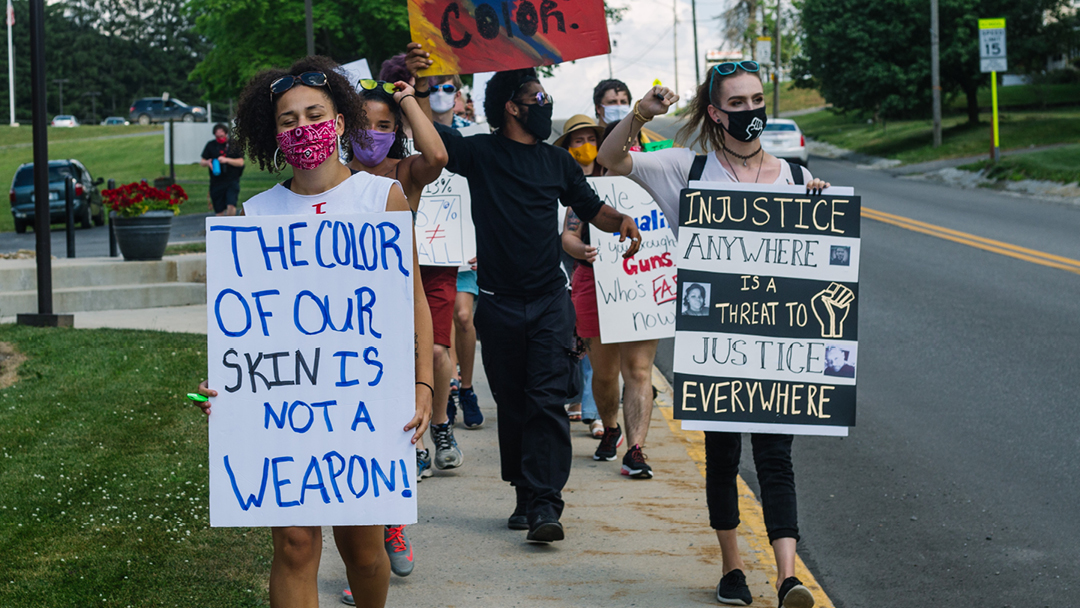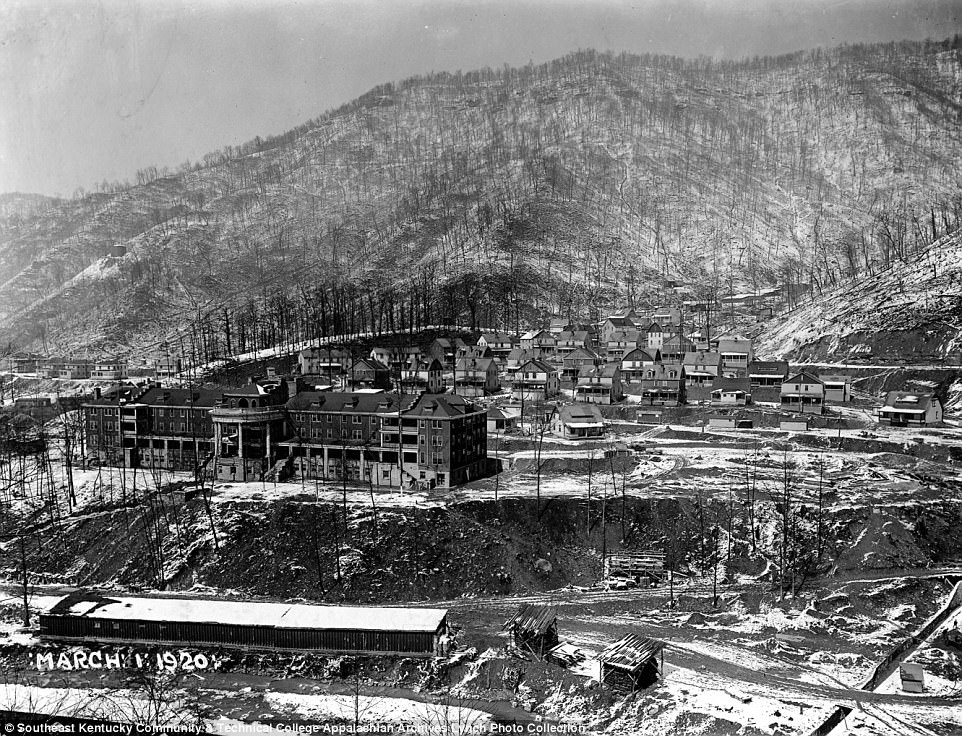“Happiness is Homemade,” the dangling sign to the bakery reads in bold, bright letters as I walk down the sidewalk, contemplating. Everything on Main Street seems so welcoming – pastel colors and invitations to enter and the annual Strawberry Festival already being planned. Kids carry hand-dipped ice cream cones past art galleries and antique stores. The smells of the various locally-owned restaurants linger just a little longer on this windless day, and my sweet tooth can’t be ignored. I step inside.
I buy a muffin and have a seat. Beautiful, blooming flowers accent the street. Flowers in every size and color create such a dreamy distraction, provide such a peaceful aesthetic. But what I can see on the surface of my hometown from the window isn’t all that it’s made up of. Some things lie much deeper; they aren’t so obvious. I wonder how these people can celebrate things like strawberries, but not basic human rights. I wonder how they can ask us to support local businesses but not our own neighbors and youth. Hate is homemade, too.
Here in West Virginia, we have the highest per capita rate of children in state custody in the country, according to our Department of Health and Human Resources (DHHR), about 7,000 kids, a number that has increased by more than 70 percent over the past decade. One website tells me that, “In West Virginia, more foster parents are needed than ever before,” and that “the most significant way you can help is by becoming a foster parent.” At a time when we need to be lead by love more than ever before, why, then, are our state legislators voting for discrimination at the cost of our children?
During an interim meeting of the West Virignia Leigslature in 2019, the Joint Legislative Rule-Making Review Committee voted 7 to 5 to strip protections for LGBTQ+ foster children and families from state law, allowing adoption agencies to discriminate against same-sex parents and foster children, even though youth in care of the state are more likely to be LGBTQ+ than those in the general population, according to the state DHHR deputy secretary, and same-sex couples are six times more likely to foster children and at least four times more likely to adopt, according to the Family Equality Council.
According to a 2010 report by the Williams Institute, there are 507 same-sex couples raising an estimated 1,014 children in the state of West Virginia, yet there are no provisions in state law or policy protecting LGBTQ+ prospective foster parents and LGBTQ children in the foster care system from discrimination. That’s despite studies that show many LGBTQ+ youth face abuse and neglect due to their family’s lack of acceptance – with more than 30 percent reporting physical violence at the hands of a family member after coming out. LGBTQ+ youth are more likely to commit suicide and suffer from mental health issues and substance abuse, and those LGBTQ+ youth that have entered out-of-home placements are more likely to have multiple placements and are less likely to achieve permanency. According to a 2007 report by the Williams Institute, if West Virginia were to ban LGBTQ+ people from serving as foster parents, it would cost the state between $777,000 and $1.2 million per year.
Lately, I’ve heard a lot of people saying that we’re all in the same boat. Perhaps we are in the same storm, but we are definitely not in the same boat. Some people have nice boats that protect them from the storm while others have boats with holes in them that are slowly sinking.
To be more specific, heterosexual people don’t have to worry about being discriminated against at an adoption agency, LGBTQ+ people do. Heterosexual children don’t have to worry about being discriminated against for family placement, LGBTQ+ youth do. Of the 1.6 million youth who ran away from home and experienced at least one night of homeless, according to a federal government report, somewhere between 20 to 40 percent of them identified as LGBTQ+.
So, I would like to propose a change in the saying: Perhaps we are kneaded out of the same dough, but we are not all baked in the same oven.
I am a homemade product of this place, of North Central West Virginia. I was raised here, I was educated here, and I am a foster parent here. I am a queer person raising my family in a state and in a regino whose legislators have voted time and time to discriminate against me and people like me. My crust is still forming, but that also means that my bread is still rising. Love is homemade, too.
Sara Fincham is LGBTQ+ foster parent who has worked in the domestic and sexual violence field for 8 years. She is a native of North Central West Virginia and a member of 100 Days in Appalachia’s Appalachian Advisors Network. You can connect with Sara here.



